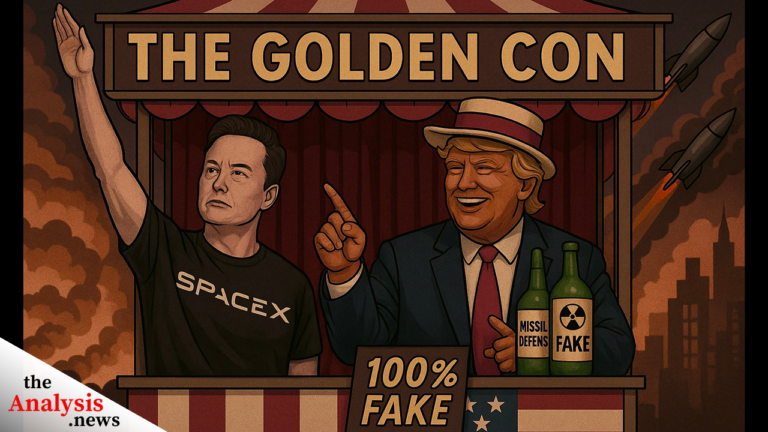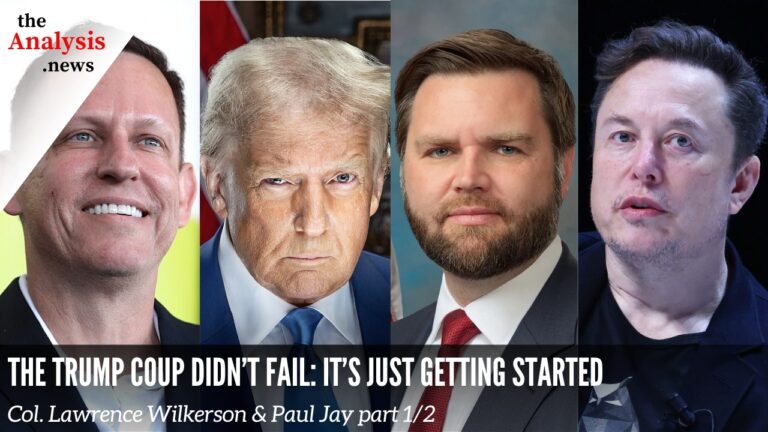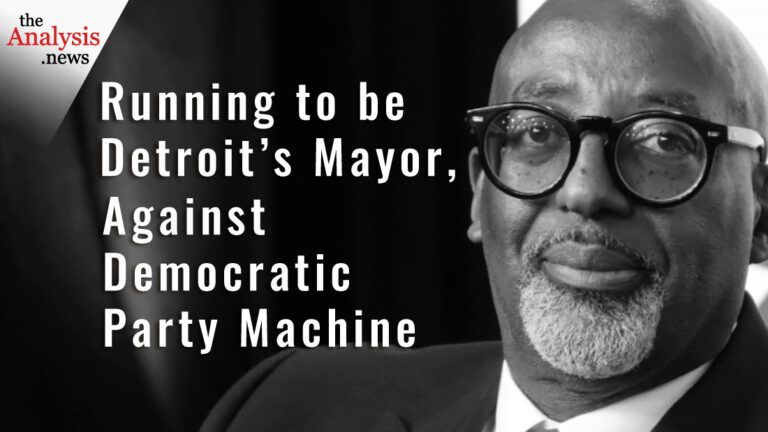Similar Posts

Juice Media Satire: Australian “Values”
The Australien Government has made an ad about Australian Values for people planning to become citizens, and it’s another biting satire.

Trump Tariffs: The Madman Theory Applied to Economics (and what we should do about it)
In part one, Paul Jay exposes how Trump’s tariff policy, far from protecting American workers, is a calculated strategy to fund militarization, crush labor, and entrench corporate-nationalist rule. Behind the chaos lies a coherent project—driven by Trump’s allies—to weaponize climate denial, exploit regressive taxes, and funnel billions into AI-driven warfare and fossil fuel expansion. The so-called “Golden Dome” is revealed as a trillion-dollar boondoggle enriching tech oligarchs under the guise of missile defense. This is not economic protectionism—it’s the financial architecture of authoritarianism.

YouTube Censorship and Now What’s Happening in Kansas – Thomas Frank
Thomas Frank and Paul Jay discuss censorship by monopolies and changes in the political landscape of Kansas, on theAnalysis.news

Should the Left Vote for the Enemy? – Adolph Reed part 1/2
Adolph Reed argues that the left should vote for Biden in the coming presidential elections, even though Corporate Democrats defend the underlying system, Trump and the forces that back him represent a more overt form of fascistization.

The Trump Coup Didn’t Fail: It’s Just Getting Started – Wilkerson and Jay Pt. 1/2
Is the U.S. heading toward a Mussolini-style corporate fascism? Colonel Larry Wilkerson joins Paul Jay to expose the power struggle shaping America’s future. From Trump’s influence to billionaires pushing for a CEO-run government, they break down the real coup happening in plain sight.

Running to be Detroit’s Mayor – Against Democratic Party Machine
Anthony Adams is running for mayor of Detroit on a progressive platform. He’s being marginalized by local media and opposed by the Democratic Party, including President Biden. Anthony Adams joins Paul Jay on theAnalysis.news.

Have long enjoyed Gerald’s analysis. But it was only with this interview that I realized how exciting and profound a scholar he is.
This has been a very interesting analysis. Notice that this is written in the past tense. Now if I wrote, “This is an interesting analysis” it takes on a whole different meaning. Same idea with the writing of history when the historian draws a line between the past and the present. The past is portrayed as radically different than the present and there’s an invisible barrier that can never be crossed because the past is gone forever and never to be lived again by anyone. Then what is history? If you look at the classical historians they were the ones that wrote a grand story of an event that took place in the past and wrote the story to be read in the present. Much of it was written as a tall tale and if read today might be considered a work of fantasy, even a made up fiction. But somehow it’s believed to be true enough to be considered that it really happened. Even if there’s a giant and a three headed monster involved in the narrative. So the question becomes what are the facts in the history so there is truth behind the story? This is where stuff gets tricky because someone might ask, “What really is a fact?”
I don’t mean to sound tedious but history has been written the old way, the grand narrative way, for more than 3000 years and it’s not until we get to the last couple of hundred years that history starts to concern itself with uncovering the facts behind any truth. So when a historian goes to an archive and starts looking at accounting records and finds records about the slave trade then slavery becomes a fact. It really took place. There are records available and are even viewable on google scholar that illustrate slavery happening in real time. Now why did slavery take place? One approach would be to say that slavery became an economic necessity because there was a scarcity of labor in the new world. This might be true but does it really explain slavery? It’s not until you start looking at the belief of race, quite the vogue expression in the 19th century, and a desire to explain slavery as it stood back in the 1850s, that you find one dominant group, namely the southern white slave holders, considering themselves superior over blacks because of their race and running an entire economic system in the south through slavery.
If the writing of history is pushed back to the grand narrative event form then there will be a history that will be less true, more fantasy like, and more twisted to fit a mould created to deceive people. In this situation history will become just plain old bullshit. But if you want a real history you have to have facts to make it up, dress it up, take it out on a night on the town, and come home on the Mail Wagon at the crack of dawn.
Whereas Nietzsche elsewhere lamented a lack of historical perspective, he also compared the historian to the crab: he looks backward so long he begins to think backward too. In the interest of simplification it seems to me you are taking the history as more than it need be to the point it confuses. Or confuses your comment because I’m not quite sure what your point is. I’m not so sure Tacitus didn’t employ facts in his histories. And Howard Zinn made clear who makes real history: the collective actions of ordinary people and their quest for justice.